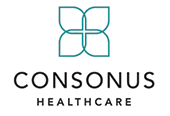Shaping the Future of Aging in Washington
LeadingAge Washington, has a variety of Cabinets, Councils, Advisory Groups, and Professional Networks that are essential to the planning of public policy objectives and professional development opportunities. Our Cabinets, Councils, Advisory Groups, and Professional Networks rely exclusively on our members’ generosity of their time. We encourage you, and the many experts on your staff, to get (or stay) involved in your association so that together we can more effectively address today’s needs and advance the future of aging services.
Questions or interest? Please contact Cassi at CMeritt@LeadingAgeWA.org
Cabinets
Our Cabinets are organized around member segments and serve four key functions 1.) Shape and inform our annual legislative agenda, 2.) Advise on regulatory issues, 3.) Showcase emerging models and best practices, and 4.) Identify education and resource development opportunities.
Adult Day Cabinet (4 meetings/year)
- How can we raise the profile of Adult Day Programs within the larger long‐term care community and with the general public?
- What tools and resources e.g. advocacy, regulatory changes, professional development, are needed to enable Adult Day Providers to better serve their participants and caregivers?
Assisted Living Cabinet (4 meetings/year)
- How should LeadingAge respond to and shape public policy on issues related to assisted living providers?
- How can LeadingAge increase the supply of assisted living services for seniors in Washington?
- How do we advance the need for adequate funding for assisted living to remain an option for all consumers?
- What partnerships should be pursued to advance this work?
Life Plan Community Cabinet (4 meetings/year)
- How do we grow awareness of the value of LPCs as a senior living and care option with the public and policymakers?
- What public policy or communication and relationship strategies will best achieve transparency and trust?
Nursing Home Cabinet (4 meetings/year)
- How do we prepare for the new Medicare and Medicaid payment systems? (Bundle model, managed care – Medicaid, and fee for service/quality).
- What implementation issues must be addressed to improve operational efficiencies and opportunities for success in the new and changing healthcare market?
- What tools can we develop or promote to support members?
- How can we prepare members for upcoming federal initiatives like the new conditions of participation, value-based purchasing, and other emerging trends?
Councils
Our Councils are organized around emerging issues facing our members that cut across lines of business. Councils include experts and stakeholders from outside the membership to inform and advance the Council’s work.
Workforce Solutions Council (4 meetings/year)
- What new public policies, partnerships, programs or resources can help position members for workforce strength?
- How can we utilize existing workforce data or fill research gaps to best understand and advance regional solutions?
- Which outreach approaches are essential in building an effective aging service workforce public awareness campaign?
Advisory Groups
Advisory groups provide guidance to the Association and members in areas of interest that regularly affect the operations of both the Association and its members.
Clinical and Regulatory Practices (4 meetings/year)
- What emerging evidence‐based practice or care protocols will reduce risks and improve outcomes for older adults across the spectrum of services?
- What decisions need to be made to balance practice and regulation while elevating the quality of services provided to older adults?
- What tools or resources are available to understand clinical phenomenon with an emphasis on understanding the experience and values of the older adult?
- What are the trends in certification surveys and what do members need to know to be prepared?
- What federal and state regulatory challenges can LeadingAge Washington address through advocacy with regulatory agencies?
- How can LeadingAge Washington members work with DSHS to provide quality care to seniors in our state?
Education Planning (6 meetings/year)
- What staff training or educational programs are priorities for the coming year for all member segments?
- How can our signature events g. Leadership Institute, Annual Meeting be improved—educational programs, exhibits, social events, logistics, etc.?
- Which Call for Presentation (CFP) submissions should be recommended for the 2024 Conference?
Member Recognition (2‐3 meetings/year) ~ The Member Recognition Advisory Group is comprised of committee and cabinet chairs and is chaired by the Immediate Past-Chair of the Board.
- What qualities are found in exceptional individuals and organizations serving older adults and what is the best way to recognize them for their achievements?
- What nominations should be selected to receive awards in 2024?
- How can we share the stories of our award winners with a broader audience to generate positive public awareness of our work?
Professional Networks
Professional Networks are organized by disciplines for mutual support, information sharing, and professional growth. Networks meet based on an agreed schedule, (Monthly, Bi-Monthly, Quarterly), throughout the year, their meeting purpose is self-determined and led by chairs.
Board authorized networks to include disciplines that express an interest in forming. Currently, active networks include:
- Activity and Wellness
- Clinical
- Fund Development
- Human Resources
- Sales and Marketing
- Social Workers
- Staff Development
Serving Communities and Business Members ~ Serving Long-Term Care Since 1951



